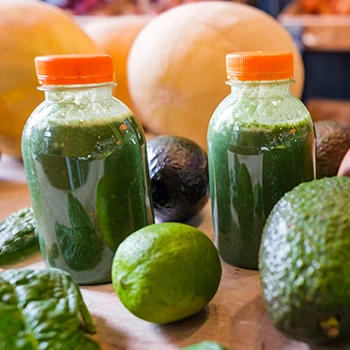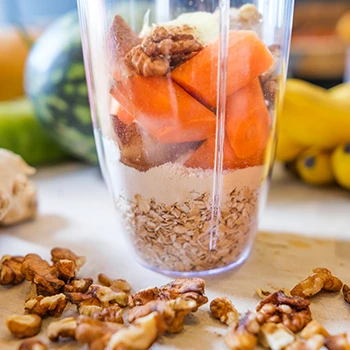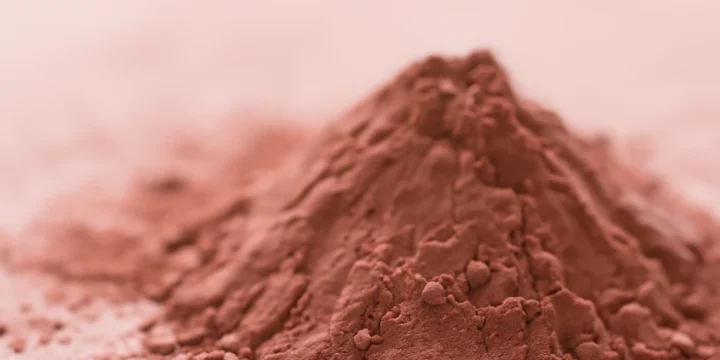I always encourage my clients to adopt high-quality protein-rich foods and supplement them with protein powders.
But one of the questions I often get after recommending protein supplementation is, “how many protein shakes should I drink in a day?”
So, in this article, I decided to compile what I know about protein consumption from my decade-long experience as a fitness coach, and I consulted a registered dietician to build upon my knowledge and provide you with a guide.
Quick Summary
- To meet daily protein needs and support muscle growth, the recommended intake is 0.8 grams of protein per kilogram of body weight, with variations based on individual activity levels and fitness goals.
- While protein shakes offer convenience and rapid absorption, traditional protein sources like meat and legumes provide a broader range of nutrients, making a combination of both ideal for a balanced diet.
- A study from Canadian Science Publishing suggests that adults need to increase their protein intake as they age to promote healthy aging and prevent muscle loss.
- In my view, while protein shakes are a practical supplement, they should complement, not replace, a well-rounded diet to ensure comprehensive nutrition and optimal health.
How Much Protein Shake Do You Need?

How much protein shake you might need depends on several factors like your daily nutrition, muscle size, as well as your fitness goals.
You don’t need a protein shake to survive. However, you need protein as an essential macronutrient.
And besides getting it from a normal meal, a convenient and efficient way to get it is from a protein powder.
According to the National Institute of Health (NIH), the recommended protein intake is 0.8 grams of protein per kg of body weight daily [1]. But this amount varies depending on your body weight and activity level.
For instance, a sedentary office worker doesn't need as much protein as an athlete.
Let’s break it down roughly:
- For a regular gym goer, a healthy dose of 1.5 grams per kilogram of body weight is enough protein for a day. But if you constantly train or engage in intense workouts, you may need a little more to recover and build muscle mass.
- If you regularly engage in HIIT workouts for fat loss, heavy strength training, or if you exercise more than twice a day, you may need about 2.0 g protein/kg/bw.
Also, a study from the Canadian Science Publishing has found that as adults grow old, they need to increase their protein intake to promote healthy aging and prevent muscle loss [2].
While the intake of protein supplements is beneficial in building lean muscle gains, losing weight, and promoting healthy aging, they should not serve as a replacement for a healthy diet.
To better understand the role of protein shakes as a supplement, let’s dive into why they’re important in the first place.
Related Article: Can You Live Off of Protein Shakes?
Why Bodybuilders Take Protein Shakes?

Bodybuilders take protein shakes before or after a workout because it's an efficient way of getting the necessary protein intake to boost recovery and performance.
They simply save you the hassle that comes with preparing a protein-powered meal to eat before and after a workout.
Balanced Diet and Protein Shakes
Not to say that a balanced diet is not necessary after a few scoops of protein powder.
It's just that it's much easier to prepare and drink protein shakes in precise amounts from a blender than to prepare a whole meal to satisfy all the protein needs.
See, after drinking protein shakes, it's much easier knowing that you already have an adequate protein intake for the day and don't have to look for meals to fill the deficit.
If you exercise more than twice a day or are just a gym regular looking to gain muscle, the need for protein is especially important, and a meal alone may not be enough.
But that's where protein shakes come in. You can quickly get your fill with one or two scoops of protein shakes.
“Not only is a protein shake good for your muscles, but it can aid you in post-workout recovery.”
- Kiersten Hickman, Nutrition Journalist
I always recommend one or two protein shakes daily to my clients. But the dietician I spoke to recommends capping it to a maximum of three protein shakes a day and nothing more than that.
I also advise my clients to look for protein powders that contain all the essential amino acids. You can get that from dietary supplements of animal-based protein shakes like whey protein supplements or from a combination of the best organic vegan protein powders like soy protein and pea protein.
We’ve already established that taking a protein drink or a protein-rich meal is essential to build muscle and for weight loss. But there’s a caveat in regard to the maximum you should take.
Protein Shakes and Special Diets
Protein shakes play a crucial role in special diets by offering tailored solutions.
- In vegan diets, plant-based protein shakes provide essential amino acids.
- For ketogenic and gluten-free diets, low-carb and gluten-free protein shakes help meet macronutrient requirements.
- Individuals with diabetes benefit from sugar-free options, managing blood glucose levels.
- In kidney diseases, specialized protein shakes with controlled phosphorus content offer protein without burdening the kidneys.
Protein shakes serve as versatile supplements, addressing dietary restrictions and health conditions, ensuring individuals in various circumstances can meet their protein needs while adhering to specific nutritional requirements.
Always consult a healthcare professional for personalized dietary advice.
13 Drawbacks of Too Much Protein Shake

According to a study by the Royal Society of Chemistry, consuming too much protein can be harmful to your health [3].
Below are some of the adverse effects of excessive intake:
- Gastrointestinal discomforts such as diarrhea, constipation, bloating, gas, and stomach upset
- Hyperaminoacidemia (an excess amount of amino acid in the bloodstream)
- Hyperammonemia (an excessive amount of ammonia in the blood)
- Hyperinsulinemia (an excessive amount of insulin in the blood)
- Irritation
- Dehydration
- Nausea
- Liver and kidney injuries
- Headache
- Fatigue
- Seizures
- Risk of cardiovascular disease
- Death
But it's not just about the physical effects but what consuming protein in excess limits you from.
According to NIH, proteins can make you feel full for long periods [4]. And when you take them in excess, they may limit your intake of other nutrients, such as vegetables and fiber, which are also vital for the body.
What's more? Taking more than the recommended amount of protein a day can jeopardize your fitness goals.
When you drink too many protein shakes, your body reaches a tipping point, after which it can no longer absorb proteins.
And unlike carbs which can be stored as glycogen in the muscles and liver, the human body does not store excess protein. It converts it into fat while the excess amino acids are excreted.
This is backed by a 2016 study by Clinical Nutrition Journal that found a link between excessive protein intake and weight gain [5].
Thus, if your goal is to lose weight, exceeding your daily protein intake can result in the opposite of weight loss.
Related: Can Too Much Protein Cause Constipation?
Protein Shakes vs. Traditional Protein Sources
Traditional protein sources like meat, fish, eggs, and legumes provide a diverse array of nutrients, including vitamins, minerals, and healthy fats, in addition to protein.
While they may be cost-effective, they require preparation time. Protein shakes offer convenience and rapid absorption but may lack some micronutrients.
The choice depends on individual preferences, dietary needs, and fitness goals.
Combining both sources can be an optimal approach, ensuring a well-rounded nutritional profile for overall health and supporting fitness objectives, while accommodating lifestyle demands and preferences.
FAQs
How Much Protein Is in a Protein Shake?
How much protein is in a protein shake depends on different brands’ specifications. Most brand formulas have 20-30g on average, which is the optimal range for maximum muscle protein synthesis.
For whey protein isolate, the purified form, it’s almost the same amount contained in one scoop of protein.
How Much is Too Much?
More than 50 grams of protein in a shake per day is probably too much. You risk having intestinal problems such as diarrhea, nausea, and even more serious health issues such as liver and cardiovascular diseases.
References:
- https://www.ncbi.nlm.nih.gov/pmc/articles/PMC5872778/
- https://cdnsciencepub.com/doi/10.1139/apnm-2015-0550
- https://pubs.rsc.org/en/content/articlehtml/2016/fo/c5fo01530h
- https://pubmed.ncbi.nlm.nih.gov/18469287/
- https://www.clinicalnutritionjournal.com/article/S0261-5614(15)00091-6/abstract
About The Author
You May Also Like






